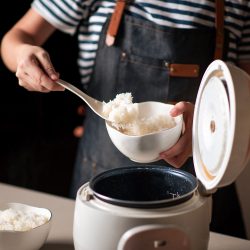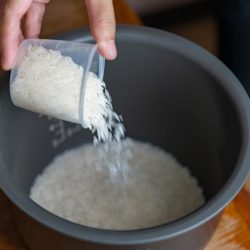Getting your cooking measurements just right can feel like an impossible task sometimes. Does your rice cooker overflow every time you try to use it, and you don't know what you're doing wrong? Well, we've done plenty of research and have the answer waiting here for you. Let's check it out.
The main reason a rice cooker overflows is that you put either too much water or too much rice inside of it. Considering that rice will bloat/expand as it cooks, you want to try to give your food some space to get bigger inside your rice cooker. That said, it is completely normal for a rice cooker to bubble over while it's on, although adding a bit of oil to your rice can prevent this from happening.
As we begin, we will cover all things rice cookers and explain how to keep yours from overflowing. Whether you're new to this kitchen appliance or can't seem to catch a break, we're here to offer you some help. With that said, let's dive right into this topic!
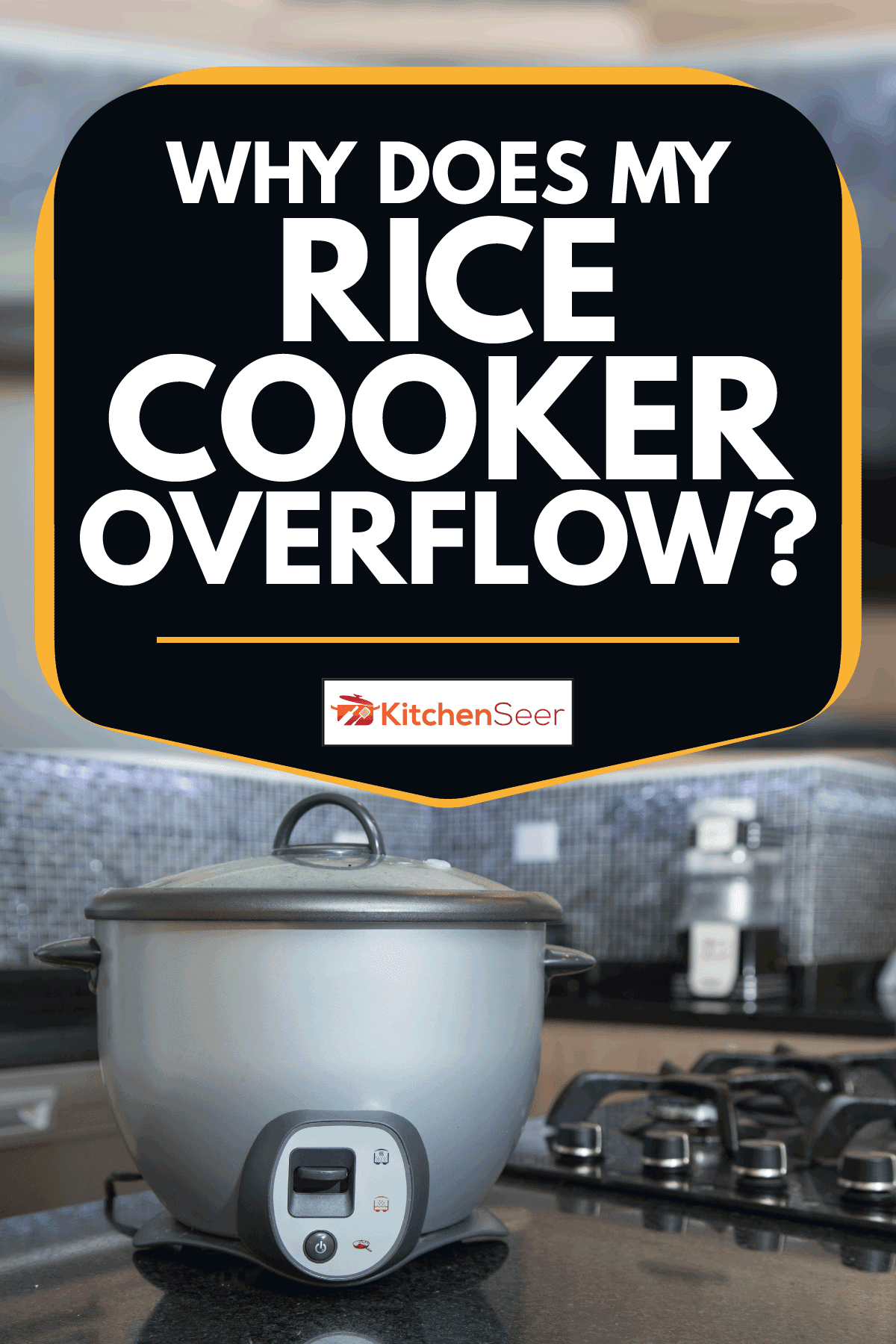
How Do I Stop My Rice Cooker From Overflowing?
For those having a hard time keeping everything inside of their rice cooker, there are a few ways to keep your appliance from overflowing. Some easy things to try include the following:
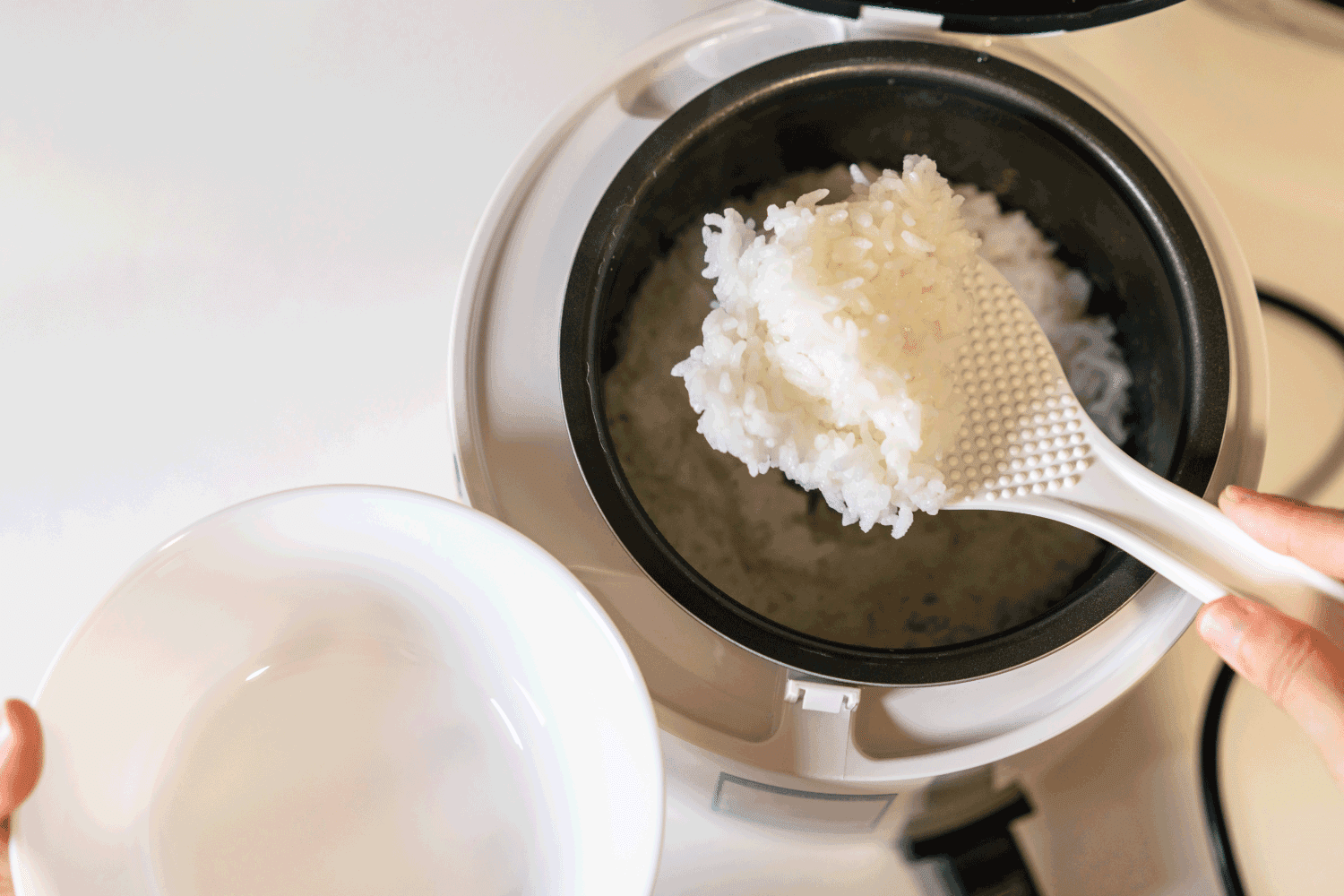
- Use rice with less starch.
- Wash your rice before cooking.
- Soak your rice in water before cooking.
- Avoid overfilling your rice cooker.
- Give your rice cooker a deep clean.
- Add some oil to your rice cooker.
Of course, one of the easier methods here would be to fill your rice cooker about halfway with rice and water, leaving enough space for it to expand without overflowing.
Why Does Rice Overflow With Water?
Typically, rice will overflow with water because it bloats during the cooking process. This can cause the water inside your cooker to be pushed out due to a lack of space, resulting in a flooded countertop.
Again, it is pretty normal to have overflow when using a rice cooker, so it's bound to happen now and then. That said, you might only be dealing with starchy bubbles making their way outside of your rice cooker, so this isn't always preventable.
What Is The Ratio For Rice To Water In A Rice Cooker?
You want to try to keep your rice and water at a 1:1 ratio when using a rice cooker. Doing this will ensure your rice has enough liquid around it to expand, but not so much that it becomes soggy.
Most times, this will only mean you need to use one cup of rice and one cup of water to prepare your food in a rice cooker, so try to keep those measurements in mind.
How Long Should Rice Cook In A Rice Cooker?
Generally, your rice should cook for about 25-35 minutes in a rice cooker. Luckily, many rice cooking appliances will have automatic timers and sensors, making this process easier.
Of course, for those without these features, you want to cook larger quantities of rice for longer periods. If your rice cooker is almost full, expect about a 35 minute cook time.
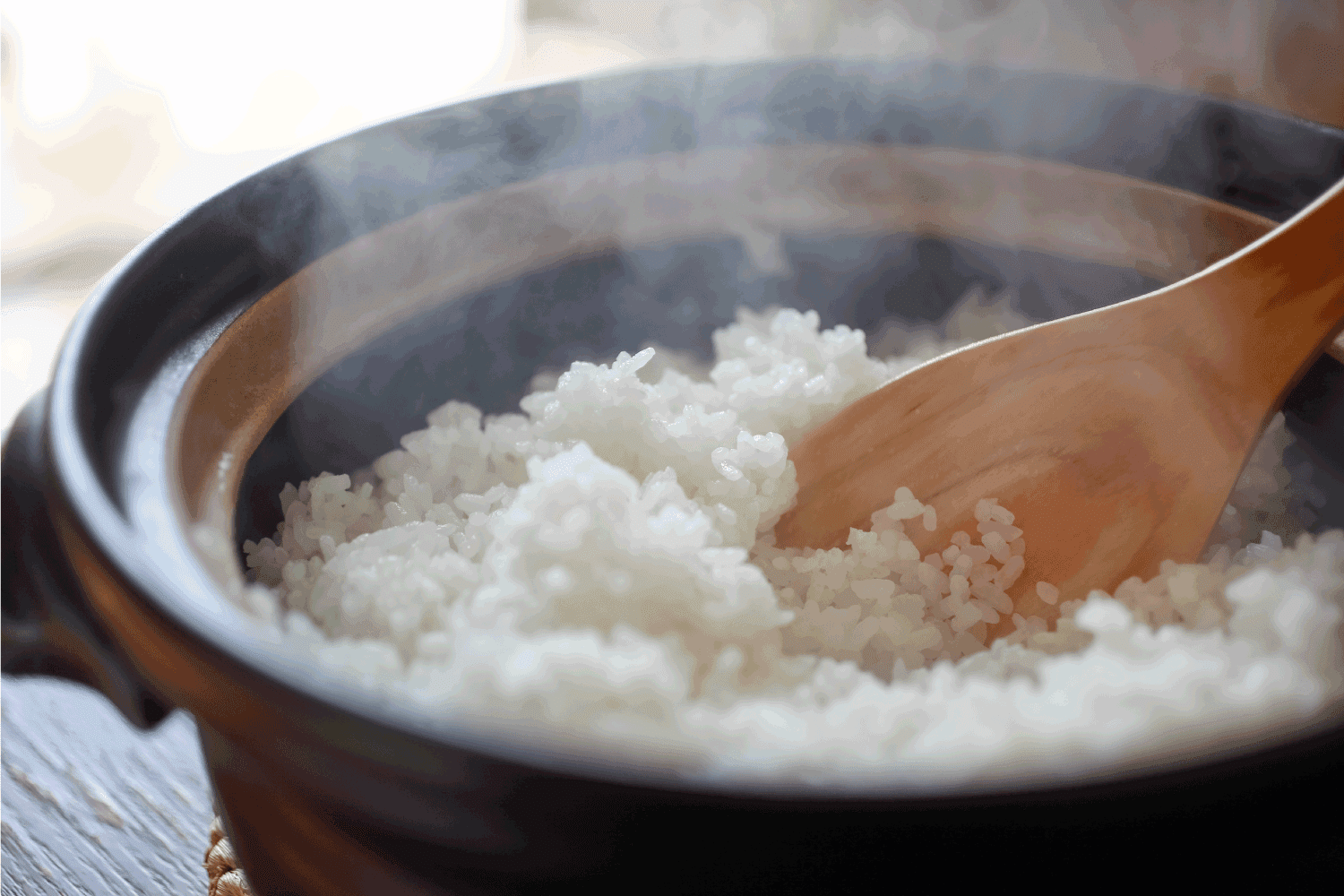
How Long Does 2 Cups Of Rice Take In A Rice Cooker?
You can usually expect two cups of rice to cook for about 20-25 minutes in a rice cooker. Of course, this might vary depending on your system and how you prepare your rice, so each one will be slightly different.
Like we mentioned above, larger amounts of rice tend to cook slower, so if you fill up your cooker two-thirds or more, your cooking time will be a little longer.
Why Does It Take So Long To Cook Rice In A Rice Cooker?
If your rice takes a long time to cook in a rice cooker, the amount of water is most likely to blame. When you put too much water into a rice cooker, this essentially causes it to take longer to heat up, thus affecting your cook time.
On top of that, too much water in a rice cooker can lead to soggy rice and even an overflow, so following our 1:1 ratio suggestion is a good idea.
How Do You Know Rice Is Done In A Rice Cooker?
A rice cooker will often make a sound or have a flashing light that indicates it's done cooking your rice. Especially for more modern rice cookers, your appliance should have various time settings and an auto-shut-off option, which will tell you that your food is ready to eat.
That said, if you can't figure out how to use these features or don't have them, an easy way to tell if your rice is done is to check how much water is in your cooker. If it's low/boiled away, your rice is most likely finished.
Why Does My Rice Come Out Mushy?
In general, if your rice feels mushy, it's because of too much starch. As we said, it's a good idea to rinse off or soak rice before cooking it to prevent overflow and super sticky food.
On top of that, excess starch might also cause your rice to clump together in the rice cooker, so it's better to spend a few extra minutes washing it beforehand.
What To Do If Rice Is Foaming?
One of the best ways to keep rice from foaming in a rice cooker is to add oil. We recommend using either olive oil or butter for your rice before cooking to prevent foaming.
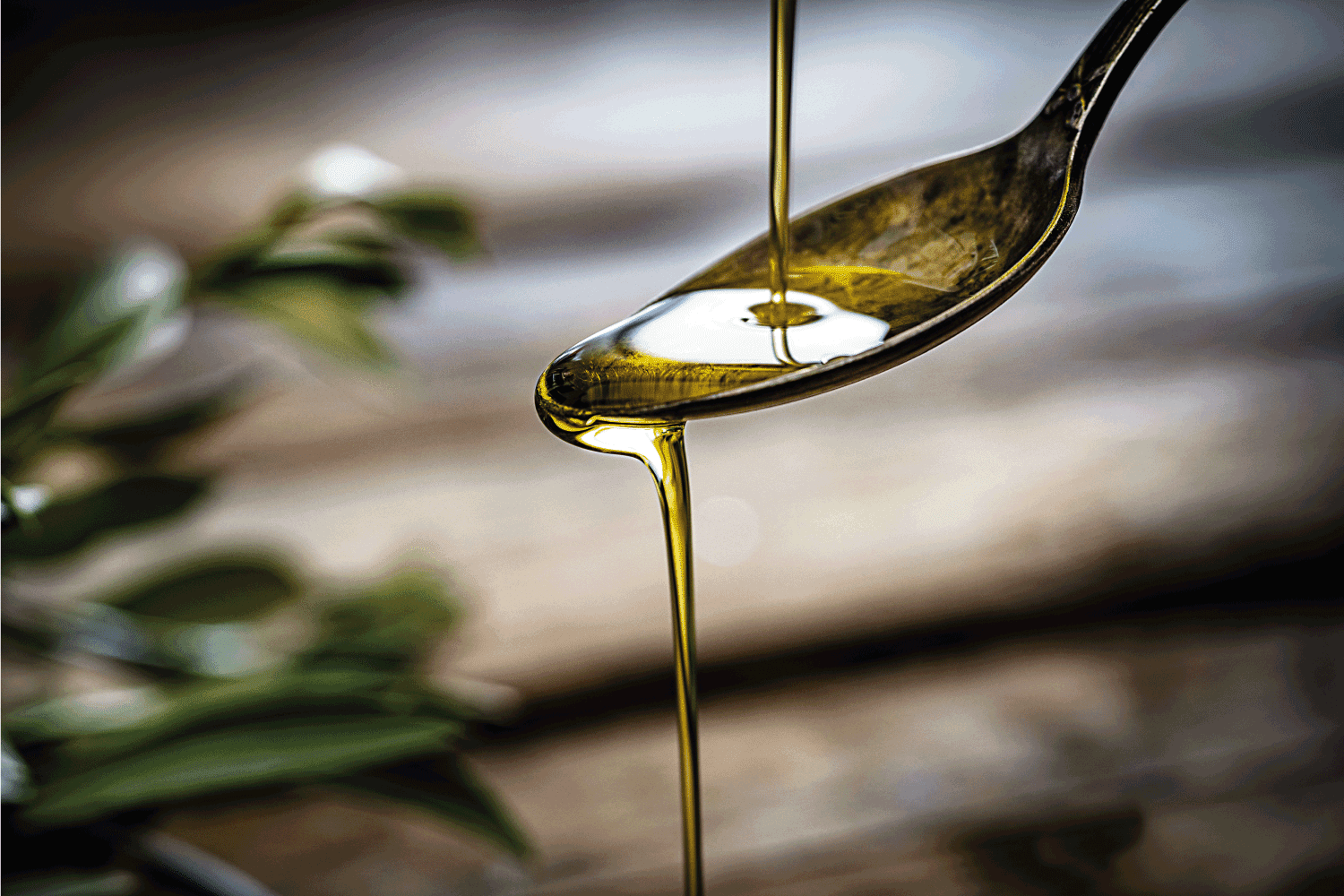
That said, you don't want to use more than a dash of any oil for your rice because too much can make your final recipe taste soggy, so try to keep that in mind.
Should Steam Come Out Of A Rice Cooker?
Yes, it is normal to see some steam come out of your rice cooker. In general, this happens when your rice's water starts to boil, and shouldn't be any reason to worry.
Usually, it's a good sign to see a bit of steam form when your rice cooks because this means your appliance's vent is working correctly and your rice cooker isn't at risk of building up too much pressure and exploding.
However, if you can smell burning and there is a lot of steam coming out of your rice cooker, this probably means your rice has started to burn and can be taken out, so try to keep an eye on your food.
What Is The Difference Between A Rice Cooker And A Steamer?
The main difference between a rice cooker and a steamer is their capability. Although it can cook rice, a steamer can also prepare other dishes. A rice cooker is mainly suited for rice.
Again, if you prefer your rice to come out perfect every time, a rice cooker is your best bet. A steamer might not always prepare it as well. It's also possible to find a rice cooker with a built-in steamer, so that's a good compromise if you want the best of both appliances.
Aroma Housewares Rice Cooker and Food Steamer
This two-in-one rice cooker and steamer is nonstick, has a tempered glass lid, aluminum steam tray, rice measuring cup, and serving spatula, and can hold up to 1.5 quarts.
Follow this link to see it on Amazon.
Which Is Better: Steamer Or Rice Cooker?
When it comes to which kitchen appliance is better, this comes down to your cooking needs. As we said, a rice cooker will be better for rice than a steamer, but can't usually prepare other foods.
With that said, some chefs prefer the more delicate approach a steamer has for rice, considering it doesn't use boiling water, so that's something to consider. Again, a hybrid of the two systems will be better for everyday cooking, although a rice cooker is usually best for anything rice-related.
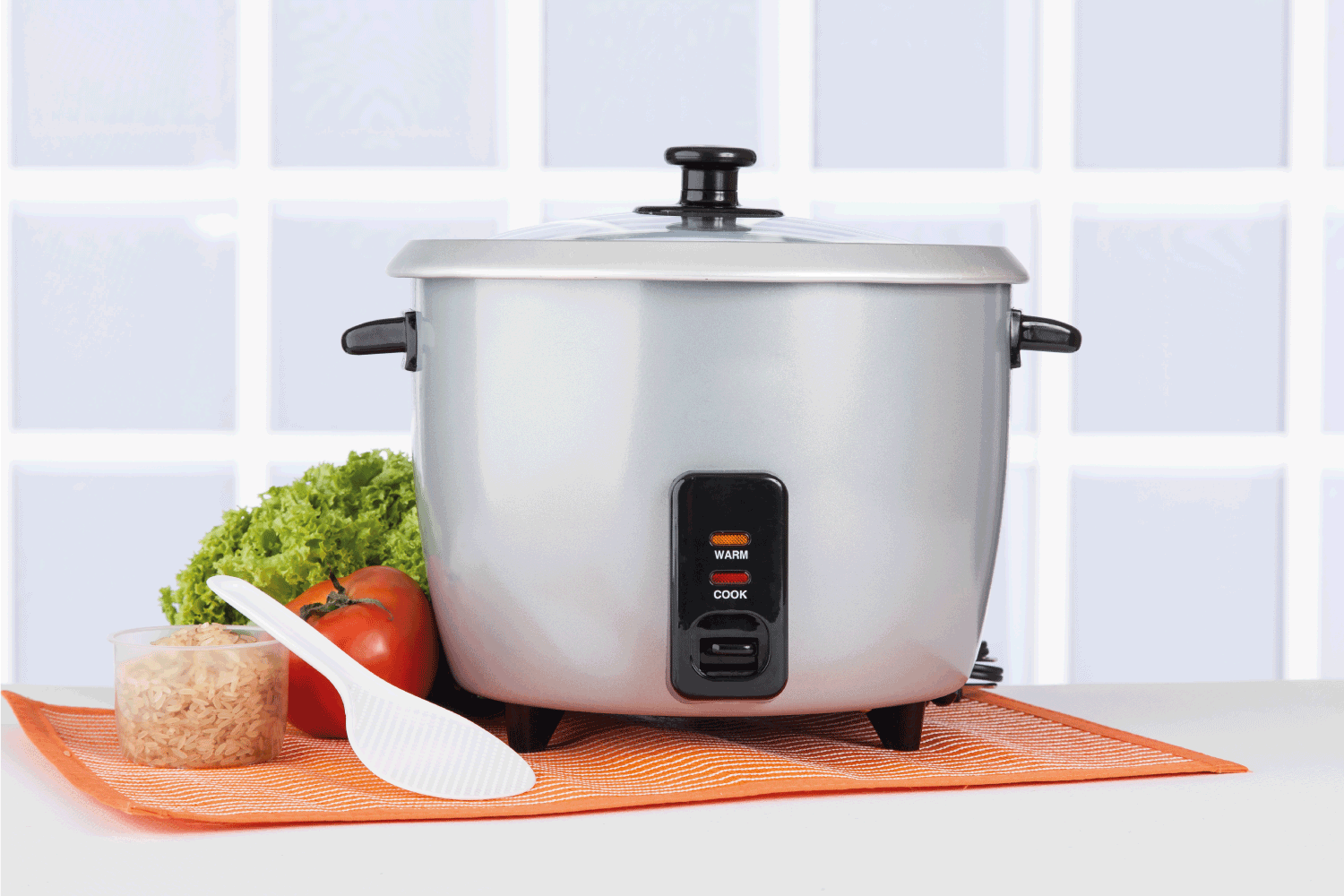
Are Rice Cookers Easy To Use?
Yes! A rice cooker should be one of the easiest appliances to use in your kitchen. As long as you measure out your water and rice correctly, there won't be any issues preparing your food in a rice cooker, so it's great for beginners.
A rice cooker will also usually feature pre-set times depending on how much rice you want to make, and some systems may even include a post-cook warming option, so those are helpful.
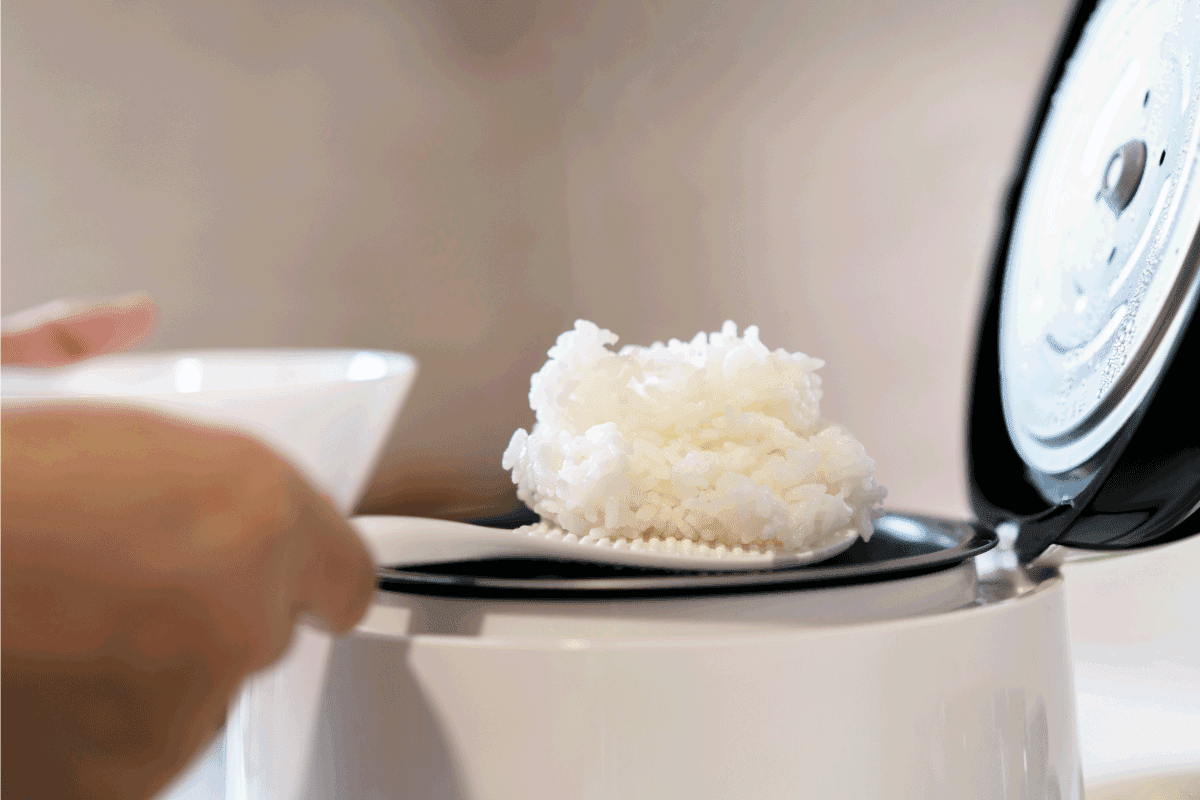
To Wrap It Up
Whether you love cooking rice or want to start, knowing how to use a rice cooker is essential. From what we found, a rice cooker will overflow if you put too much rice or water inside, so be careful with your measurements.
Adding to that, you want to keep your ratio of rice to water at 1:1, meaning equal parts regardless of how many cups you're making. It's also common for foaming/bubbling to occur while you cook rice, although adding a dash of olive oil or butter can prevent this from happening.
Regardless, try to avoid overfilling your rice cooker, and don't be alarmed if you see a bit of steam during the cooking cycle.
Before you go, check out these helpful related rice posts down below!
Can You Store Rice In Plastic Food Containers?
What's The Best Pot For Cooking Rice? [Size And Type]
Does Rice Go Bad In The Pantry? [Inc. Tips For Keeping Rice Extra Fresh]


![Pour water into rice - How Much Water To Rice In Rice Cooker [Ratio By Type Of Rice]](https://kitchenseer.com/wp-content/uploads/2022/03/Pour-water-into-rice-250x250.jpg)
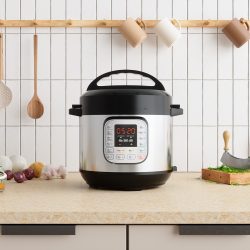
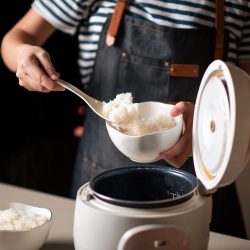
![A rice cooker filled with freshly cooked rice, Can Rice Cookers Cook Brown Rice? [And How to]](https://kitchenseer.com/wp-content/uploads/2022/02/A-rice-cooker-filled-with-freshly-cooked-rice-250x250.jpg)
